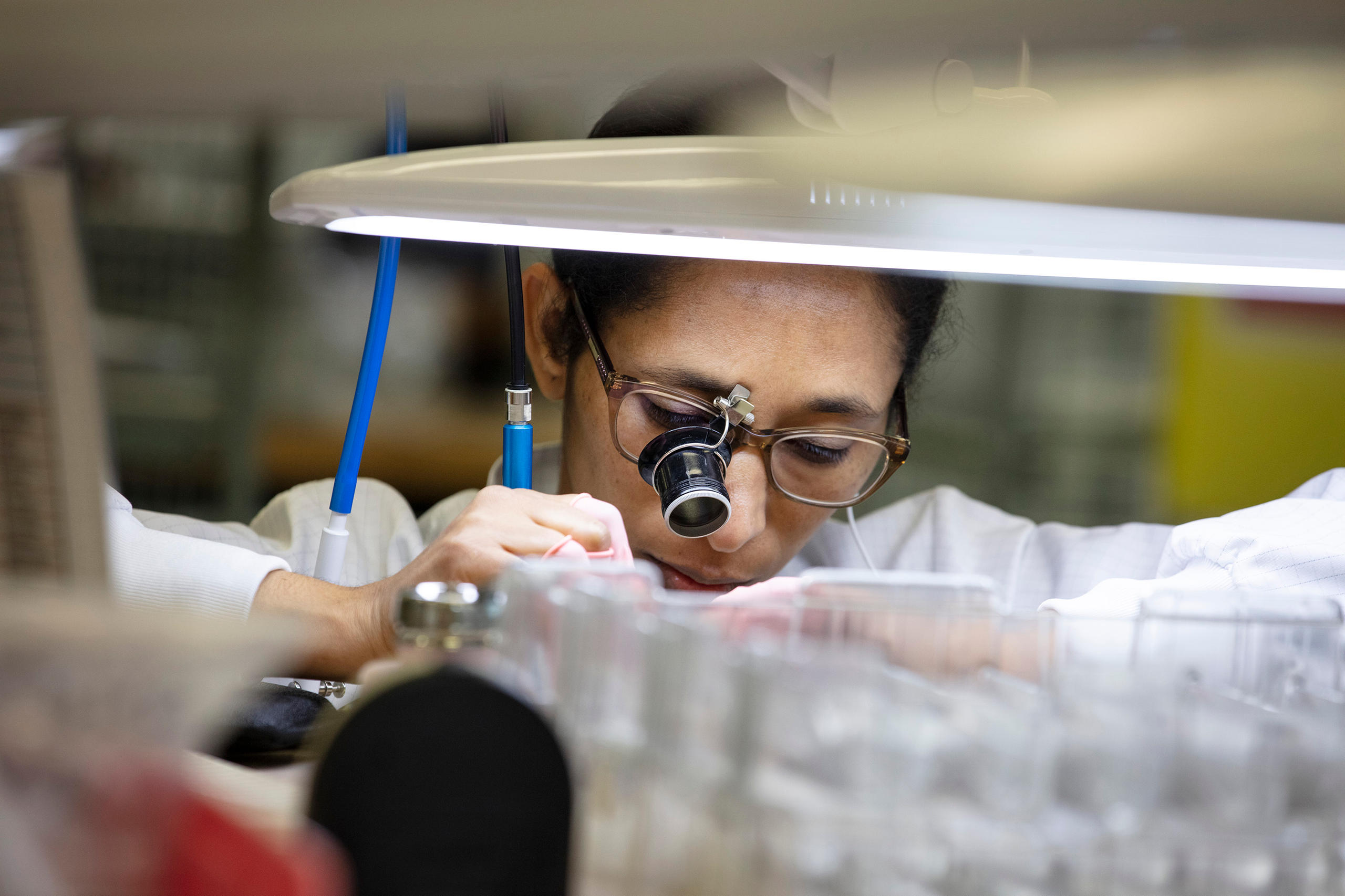
Swiss jobless rate sinks as unions demand more pay

The rate of unemployment in Switzerland fell to 2.2% last year, the lowest rate in 20 years, according to official statistics.
At the same time, trade unions complained that wages were too low for many workers and demanded more pay.
On Monday, the State Secretariat for Economic affairs (Seco) said the jobless rate fell from 3% in 2021 to 2.2% last year.
This corresponds to 99,577 people registered as out of work on average each month. The number of jobless people and those already in employment seeking a new position also decreased to 175,549 but there are signs of this rate picking up in January.
The amount of money given out by the state to compensate for shortened working hours was CHF366 million ($394 million) in 2022, significantly down on the CHF4.9 billion paid out during the pandemic year of 2021.
But Swiss companies are finding it harder to find the right talent to fill open positions.
“With the economic recovery and falling unemployment, it become increasingly difficult for companies to attract workers over the course of 2022,” stated Seco.
However, the Swiss Trade Union Federation complained on Monday that wage rises are not keeping up with inflation, which weighed in at 2.8% last year.
Unions called for a minimum wage of CHF5,000 per month for workers who had been through an apprenticeship and at least CHF4,500 for all people in work.
The Federation also called on the government to put the brakes on health insurance hikes that will rise 6.6% this year.

More
Looking ahead: Switzerland’s economic outlook for 2023

In compliance with the JTI standards
More: SWI swissinfo.ch certified by the Journalism Trust Initiative


























You can find an overview of ongoing debates with our journalists here . Please join us!
If you want to start a conversation about a topic raised in this article or want to report factual errors, email us at english@swissinfo.ch.